


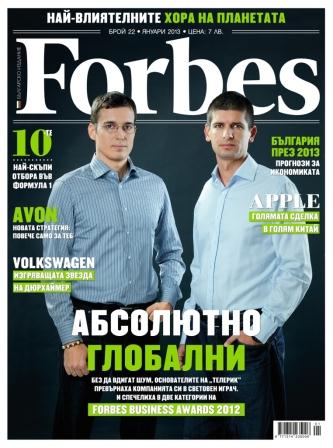
Absolutely global
Without raising much noise the founders of Telerik have turned their establishment into a global software player
Written by Hristo Petrov, Forbes Bulgaria
Photos by Elena Nenkova for Forbes Bulgaria
In 2002 Svetozar Georgiev, Vassil Terziev, Hristo Kosev and Boyko Iaramov found themselves at a crossroad. They had to make a decision: should they go on developing the outsourcing business they had just started or should they better forget it and re-qualify into a software company? Time wasn't on their side as the four friends had just left their jobs and had enough savings to keep their own business afloat for only a few months.
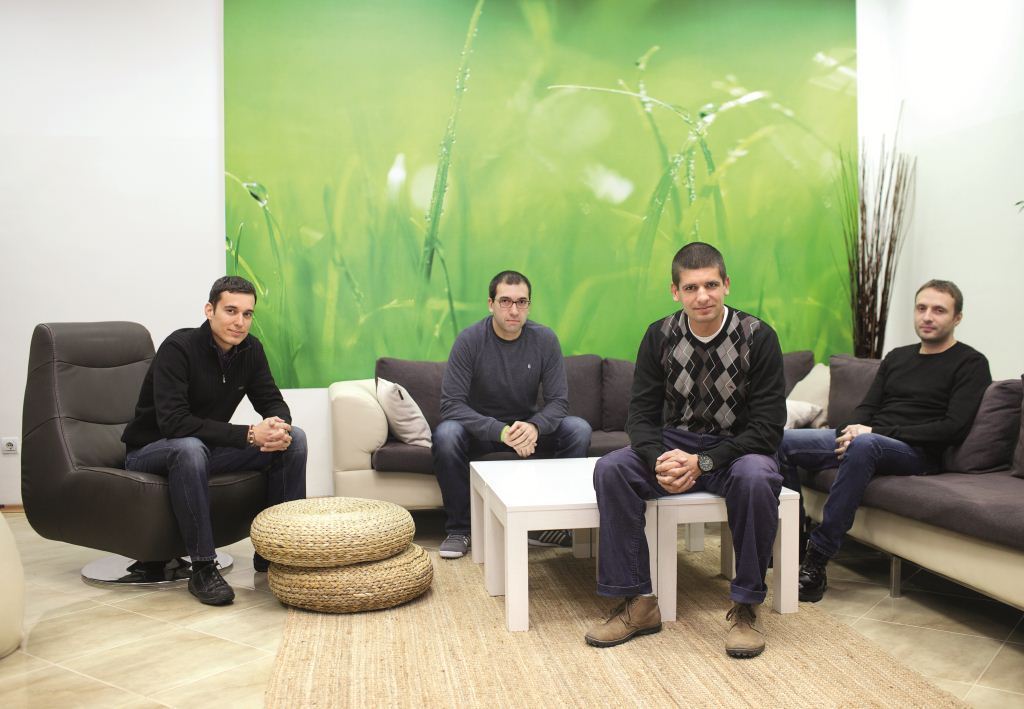
"Decision making in those days was a simple affair. There were no grand objectives in sight and it was only a matter of survival,” says Vassil Terziev (34), winding the reel back to the first years of Telerik. It looks as though the decision they made was the right one after all. Terziev is one of the four founders of the company currently operating with over 100,000 customers all over the world and running 10 offices outside of Bulgaria (5 in the States and offices in Great Britain, Germany, Canada and Australia). According to the Bulgarian Commercial Register, the consolidated report for 2011 shows that the office in Bulgaria alone has generated BGN 60 Million in revenues. In the last 10 years Telerik, which develops components for user interfaces and software modules for Microsoft's .NET platform, has grown from a small company of the "family" type into an organization described by its founders as "absolutely global". Commissioned to offices around the world, Telerik's team generates and sells software to customers from various industrial spheres, including international corporations like Chevron, Boeing, Toyota, Barclays, Nike, IBM, Roche. "Unlike other multinational companies, which are focused on local markets, we are an absolutely global entity,” says Svetozar Georgiev (36), co-founder and Telerik's co-CEO. “We don't care where our customers are. And our customers are not interested in how the company is globally spread ".
But there is more behind the avalanche-kind of success than just a good business model and a few smart ideas. You feel this the moment you enter the company's headquarters in Sofia's "Mladost" suburb. "In spite of being in the lime light, for us everyone working for the organization is a hero,” says Terziev. During the last several years Telerik has earned a reputation for being one of the best employers in the country. And indeed, the company which is ranked first in the Best Employer Awards by the consultants Aon Hewitt and which took the first place in the category "Human Resources Development" in Forbes Bulgaria’s Business Awards, has reported a meager 5% employee turnover. And if you are wondering how this is done you'd probably find a partial answer in the company's training and mentorship programs, which Telerik provides to its employees. Or the various privileges for the employees like additional days-off, a bonus system based on employee assessment three times a year or other extras like office massages. Or maybe the fact that each employee can easily meet any one of the managers to discuss various issues.
The four founders of Telerik still stick to something they call "rotating among teams "; they spend some time in the different departments of the company in order to communicate directly with the separate units. The logic here is simple: "When an employee loves his job this brings lots of benefits. It is visible not only in the people's productivity but also in the quality of the work done,” says Vassil Terziev. And when in 2011 the Bulgarian economy lost 103,000 work places, Telerik raised a sign saying "We're hiring". That same year the company increased its personnel by more than 150 employees or approximately one fifth of the total staff of 700 working at Telerik. This is an indication of a considerable progress if one is to consider the fact that 10 years ago the business started with a team of only four – its founders. Whether they like it or not, the employees have to admit that this, in itself, changes the rules of the game. Telerik is no longer the small startup with a dozen satisfied employees and no search for the big breakthrough. "The biggest change came when we numbered nearly 100 and had to decide whether we wanted a lifestyle business or we wanted to build a professional organization,” says Terziev. "The informal friendly atmosphere is something we value to this day,” adds Svetozar Georgiev. "We are trying to be a large, professionally managed company with a startup culture".

Change in scale
Regardless of thedrastic change in the scale of their business, the roles each of the four friends play are the same to this day. Vassil Terziev is the motor behind Telerik's customer communications. "The way in which he (Vassil) talked to each one of them was so individual that we even joked about his ability to remember so many people, so many names and stories,” says Boyko Iaramov (35) who is the Chief Operations Officer at Telerik. Together with Terziev and Georgiev, he studied at the American University in Bulgaria. The trio came to know Hristo Kosev (34 years of age and Chief Technology Officer) when working together for an IT company. "I don't think we could have done it even if just one of the four of us was missing,” says Vassil Terziev today when speaking of the unique combination of their talents.
First steps
The first idea that came to their minds was to develop projects for other companies, like an outsourcing company. "Everybody did it and it looked harmless,” says Vassil Terziev. Soon, however, they understood this was not a very bright idea. Nobody has ever heard of them abroad and in Bulgaria finding customers for an outsourcing company is a tough job as the companies can't understand why they should pay for something virtual, something "you can't touch".
So they shifted to producing their own software. Their major assets at the time were some experimental developments made by Hristo Kosev on the basis of which entrepreneurs must assemble their own products. From the very start he was the man with the most in-depth technical knowledge. "Each time somebody asks me about the beginnings of the company and I say that I wrote its first product the reaction is one and the same – oh!, so it’s one developer and three managers then. But it’s not like that at all,” says Kosev. The other three partners describe him as the source of most of the technical ideas and as the man thinking far into the future and from a viewpoint others don't even suspect. "He is the guy who drills the thick ice," says of him Vassil Terziev.
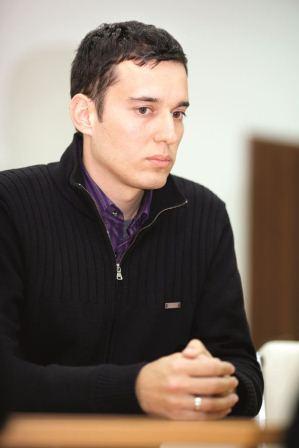
From then on the four entrepreneurs concentrated entirely on their first software - a web-page editor called RadEditor, which functioned with the then new Microsoft technology ASP.NET. "We got together and Hristo said "OK, we have a product and if we don't make a sale within a month I'll have to look for a job,” recollects Svetozar Georgiev (at that point Hristo Kosev took the greatest risk as he is not from Sofia and must earn a living while the others could rely on their parents). After they created a website and started advertising the products on all possible free channels they finally managed to find a customer willing to buy their software. "This was sheer joy for us as it came to validate the idea that we could start a business based on this product using the internet model,” says Svetozar Georgiev.
Genius stuff
And so the wheel started rolling. New customers appear, the partners start looking to hire their own employees, they start saving money and boosting software sales via the internet as their own business model. As they put it, the hiring of their first employee was a big step forward. But the really big step, which Svetozar Georgiev now calls "one of the first ingenious things we have ever done,” was the addition of functions to their software, depending on the customer's requirements. The tricky point here was that Telerik reserved the right to use these functions in the next versions of the software and to offer them to all other customers. "We were thus able to further develop the product while in reality this was financed by our customers,” says Georgiev.
Time for growth
Foreign customers got interested in the product as the number of licenses sold by Telerik started to grow. The company rapidly turned to the global market after seeing no particular interest by local customers – this demographic picture of the revenues has not changed through the years. "We had absolutely no choice. If we had started selling these products on the regional market we would have died of hunger,” says Vassil Terziev. In 2006 Telerik opened an office in Boston to serve its foreign customers, most of whom were based in the USA. That same year revenues soared by nearly 280%. The company expanded its product portfolio by releasing the Telerik Reporting software product for analyses and reports as well as a new version of one of its major products – a package for website building and RadControls applications. In 2007 revenues again went through the roof with a nearly 100% growth and accounts reported net revenues of over BGN 15 million.
The American investor
The four partners began to realize that the company may overheat from its own growth and they started considering the possibility to attract capital from venture capital funds. "When a company starts growing too fast there is always the danger that it may become unstable like a badly constructed building, which may even collapse,” says Svetozar Georgiev. "Knowing that we had reached that limit we decided that we should go to the next level".
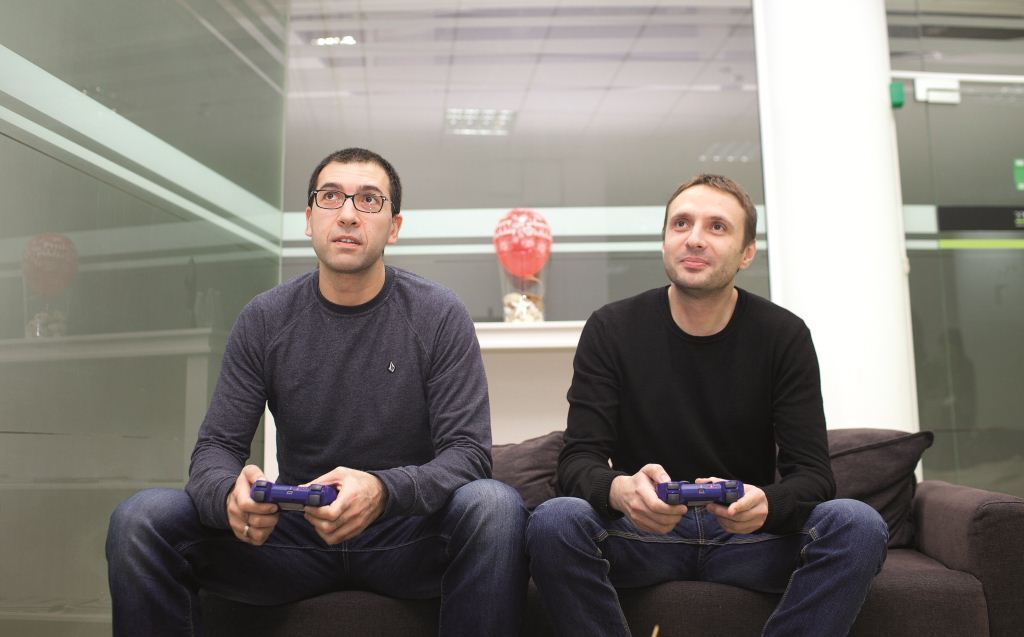
Among the venture capital funds, with which they communicate, are Summit Partners from Boston, who in 2008 invested in the Bulgarian company. The amount of the investment is not publically disclosed. Summit Partners’ financial injection gave the company an opportunity to speed up its expansion and to embark on corporate shopping. During the same year, Telerik acquired the German Vanatec and in 2009 purchased the software JustCode from another German company. During the next two years the Bulgarian company acquired two American software development companies - ArtOfTest and Mallsoft – and entered into a partnership with the Canadian Imaginet. Telerik’s most recent two investments were in the American developer NimblePros and the Fiddler tool, used for inspecting web traffic.
In addition to financial resources, Summit Partners gave the Bulgarians access to a network of personal contacts that one cannot just contact via LinkedIn or call on the phone. The American hands-off approach to their own company investments seems to have been well accepted by their Bulgarian partners. "They do not interfere in our daily work and the concrete objectives of the product development process. They are simply not software developers,” says Svetozar Georgiev.
Telerik Academy
What makes Telerik a truly innovative company is the way in which it recruits and trains its human resources. Earlier this year the Chairman of the Bulgarian Association of Software Companies (BASSCOM), George Brashnarov, presented the results from the research performed among IT companies and announced that if the growth rate within the industry remains unchanged, within only a few years the market will need three times the number of the currently available IT specialists. Sensing this deficit and striving to speed up its own growth, in 2009 Telerik contacted Svetlin Nakov, who has extensive experience in training software programmers.
The first training session at Telerik Academy was at the beginning of 2010. The lectures were attended by more than 100 people, a quarter of whom were later employed at the company. The academy then started training students from primary and secondary schools free of charge and the program saw a several-fold expansion. The training sessions are attended by students from all over the country (prior to the interview with the founders of Telerik, Forbes visited one of the two halls where the academy training sessions take place only to find its 250-seat capacity completely full). According to company data, in 2012 alone it has been able to train more than 3500 people both onsite and via lectures online. "We hold formal meetings with the Academy team on a monthly basis. After these meetings we are simply astounded by the volume of work they do and the great ideas they come up with,” says Svetozar Georgiev.
And ambitions are even greater: the company has made it its major objective to establish a kind of university, which should be able to support the education of some 30,000 software specialists annually. "It is simply necessary. It is necessary in view of the desire to raise the level of the industry itself,” says Terziev. "The higher the level of the Bulgarian IT industry the better for everyone – for the people, for the companies…We are simply more competitive."
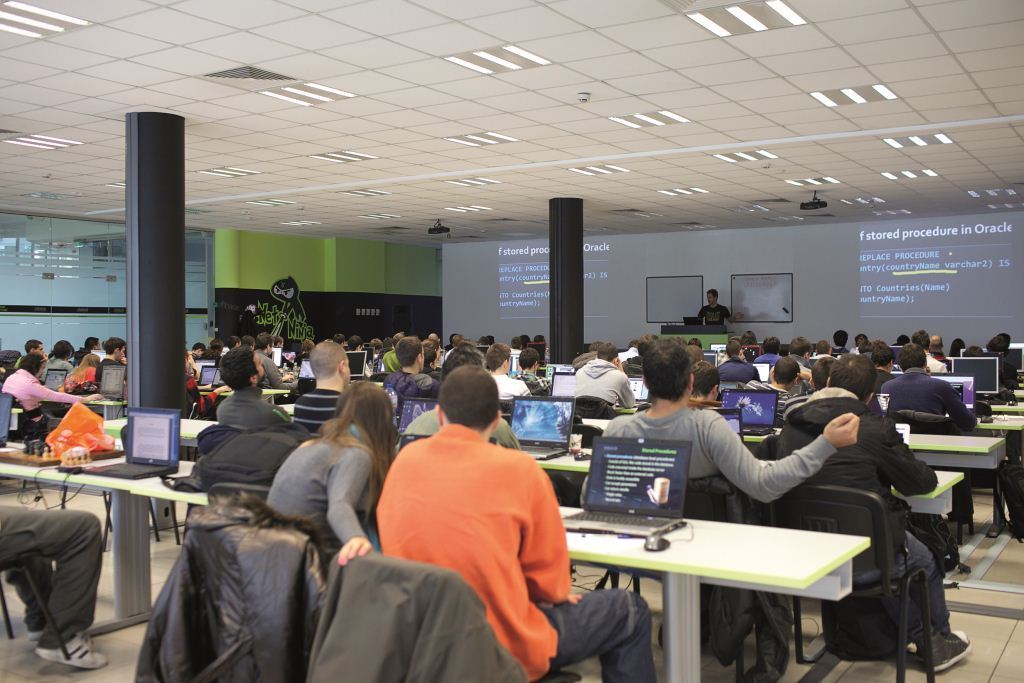
For the time being neither he, nor his partners have a concrete plan for turning the academy into an official educational institution. Before this happens, they want to be sure that they have a sustainable model for the realization of the idea. "You can create sustainable things, which can have an effect on the business and the entire ecosystem in a very positive way,” says Terziev. "We train talent for Telerik but we also improve the competence of many people, who may not choose to work for us and often end up working for our competitors".
Global startup
Forbes asked the four founders of Telerik whether the growth of the company has suppressed its startup culture. Here are their answers:
Svetozar Georgiev:
There are many positive aspects to the way a small team of people thinks. We are trying to keep these positive aspects as much as possible. It is very easy for an organization to turn into a pyramid – departments which are closed and where people don't know each other and don't even speak to each other. This is how the human element dies.
Boyko Iaramov:
In spite of the size of the organization many people feel they've got a chance to stand out. When this atmosphere is transferred to each new group of employees I don't think that we actually lose much of the startup spirit. As a whole the atmosphere is still very free and casual.
Vasil Terziev:
We have always aimed to change the nuances connected to growth but never the principles, which have governed our actions. This has helped us maintain the organizational culture while expanding. This is a great challenge for any growing business.
Hristo Kosev:
Another thing, which helps a lot, is that each one of us is easily accessible for people with ideas. It is a very flat structure and every employee can easily reach us to get half an hour with us. This is of great help when people want to discuss new projects.
.jpg?sfvrsn=25bcb8fb_2)
With diverse backgrounds and a commitment to continuous learning, their stories provide valuable insights into the benefits of upskilling and entering the dynamic field of product management.
Read the story.jpg?sfvrsn=f8c304b0_2)
Both graduates of Telerik Academy's Upskill DevOps program, Teodor and Victor share their experiences and how the program has impacted their careers.
Read the story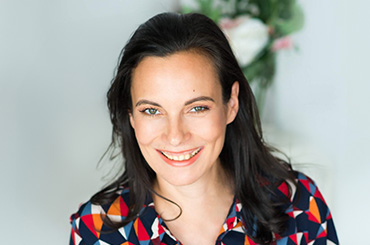
Launching a new product? What about leads? How to be successful with a new unknown brand, having a limited budget and operating in a competitive market?
Read the story